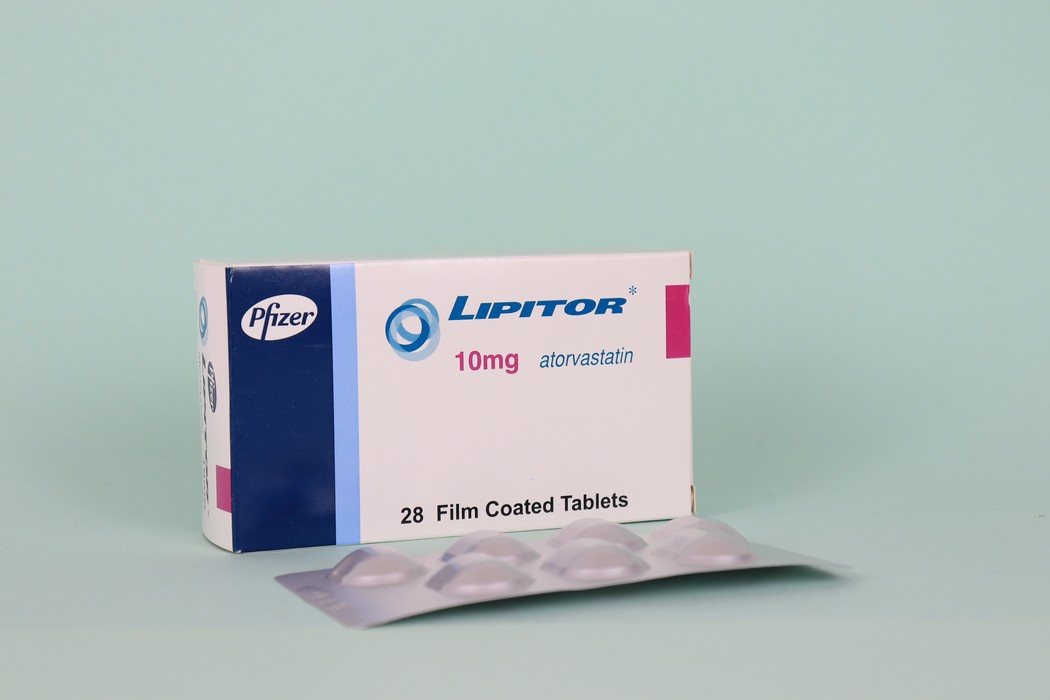Lipitor for Cholesterol Control: How It Works and What to Expect
Table of Contents
- What is Lipitor?
- How Lipitor Works
- Medical Uses of Lipitor
- Recommended Dosage
- How to Take Lipitor
- Expected Benefits
- Possible Side Effects
- Precautions and Warnings
- Drug Interactions
- Lipitor No – How to Order Online Safely
What is Lipitor?
Lipitor (atorvastatin calcium) is a prescription medication used to lower cholesterol and triglyceride levels in the blood. It belongs to the statin class of drugs and is widely prescribed to reduce the risk of cardiovascular diseases, including heart attacks and strokes.
How Lipitor Works
Lipitor works by inhibiting HMG-CoA reductase, an enzyme your liver uses to produce cholesterol. By reducing the amount of cholesterol made by the liver, Lipitor helps to lower LDL (bad) cholesterol and triglycerides while increasing HDL (good) cholesterol levels.

This mechanism helps prevent the buildup of plaque in arteries, a condition known as atherosclerosis, which can lead to serious cardiovascular events.
Medical Uses of Lipitor
Doctors prescribe Lipitor for the following conditions:
- High LDL cholesterol (hypercholesterolemia)
- Mixed dyslipidemia (combined high cholesterol and triglycerides)
- Prevention of heart attack and stroke in at-risk individuals
- Familial hypercholesterolemia (inherited high cholesterol)
- Type 2 diabetes patients with multiple risk factors
Recommended Dosage
The typical starting dose of Lipitor is 10 to 20 mg once daily. Depending on your individual needs, your doctor may increase your dose gradually up to a maximum of 80 mg per day.
Children with genetic cholesterol disorders may also be prescribed Lipitor, usually starting at 10 mg per day under close medical supervision.
How to Take Lipitor
Take Lipitor exactly as prescribed, with or without food. It is usually taken once daily, preferably at the same time each day. Swallow the tablet whole with water and avoid breaking or crushing it.
Avoid consuming grapefruit or grapefruit juice, which may interfere with the drug's effectiveness and increase the risk of side effects.
Expected Benefits
Lipitor can begin lowering cholesterol within 2 weeks of consistent use, with full effects observed after 4 to 6 weeks. Long-term benefits include:
- Significant reduction in LDL cholesterol
- Improved HDL cholesterol levels
- Lower triglycerides
- Reduced risk of heart attacks and strokes
These outcomes are further enhanced when Lipitor is combined with a heart-healthy lifestyle.
Possible Side Effects
Most users tolerate Lipitor well, but side effects can occur. Common ones include:
- Muscle pain or weakness
- Joint pain
- Diarrhea or upset stomach
- Insomnia
Serious but rare side effects may include liver dysfunction and rhabdomyolysis (a severe muscle condition). Contact your doctor if you experience dark urine, persistent fatigue, or muscle pain with fever.
Precautions and Warnings
Before starting Lipitor, inform your healthcare provider if you have:
- Liver disease or a history of abnormal liver tests
- Kidney problems
- Alcohol use disorder
- Thyroid disorders
Women who are pregnant or breastfeeding should not take Lipitor due to potential harm to the fetus or infant.
Drug Interactions
Lipitor may interact with several medications. Be sure to mention if you're using:
- Other cholesterol-lowering medications (e.g., fibrates, niacin)
- Antibiotics (e.g., clarithromycin)
- Antifungals (e.g., itraconazole)
- HIV protease inhibitors
- Immunosuppressants

To reduce the risk of interactions, keep an updated list of all medications and supplements and share it with your healthcare provider regularly.
Lipitor No – How to Order Online Safely
In today’s digital age, many patients prefer to order their medications online. If you're considering purchasing lipitor no prescription online, it’s essential to use a licensed and verified pharmacy. Avoid counterfeit or unregulated sources, and ensure that the online platform requests a valid prescription for your safety and compliance.
Conclusion
Lipitor is one of the most trusted medications for cholesterol control and cardiovascular risk reduction. Its proven ability to lower bad cholesterol and reduce the risk of heart disease has made it a go-to treatment for millions worldwide. To get the most out of Lipitor, use it exactly as prescribed, monitor your progress with regular blood tests, and maintain a healthy lifestyle with proper diet and exercise.

